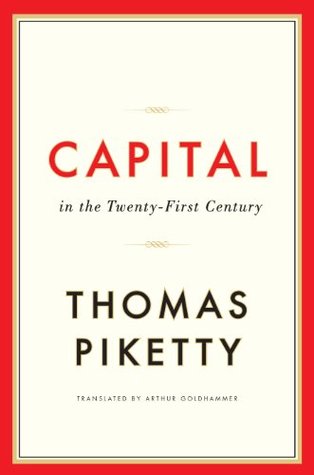In the late nineteenth century, conservative French economists such as Paul Leroy-Beaulieu often used this argument to explain why republican France, a nation of “small property owners” made egalitarian by the Revolution, had no need of a progressive or confiscatory income tax or estate tax, in contrast to aristocratic and monarchical Britain. The data show, however, that the concentration of wealth was as large at that time in France as in Britain, which clearly demonstrates that equality of rights in the marketplace cannot ensure equality of rights tout court.
Welcome back. Just a moment while we sign you in to your Goodreads account.


